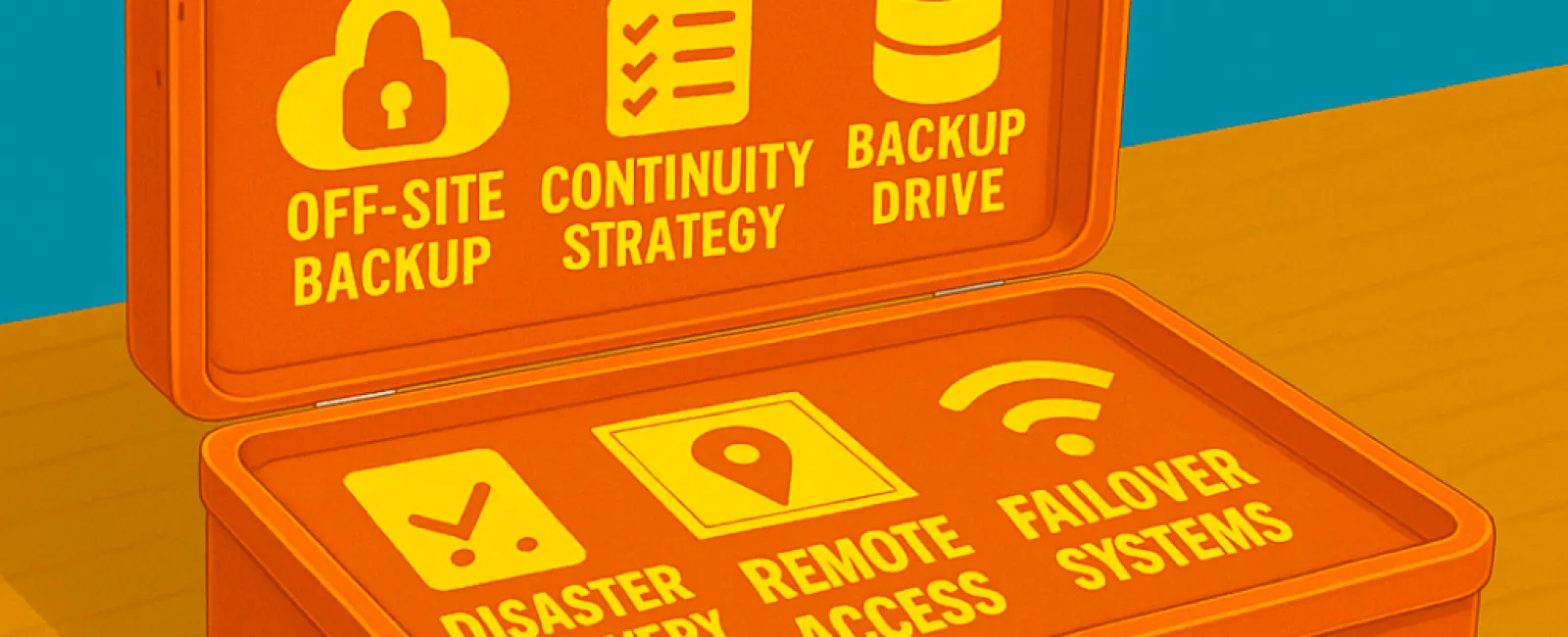July 28, 2025
Unexpected power failures, cyber attacks, hardware malfunctions, and natural catastrophes strike without notice, often causing severe disruption to small businesses. Many believe backing up data is sufficient, but restoring files alone doesn't guarantee your business stays operational. If your systems are inaccessible, remote work is unsupported, or communication with your team and clients falters, even brief interruptions can lead to prolonged setbacks. A dependable IT partner offers more than just backups—they deliver a comprehensive strategy to keep your business running smoothly under any circumstances.
Backups Are Vital, But Continuity Is Crucial
Backups form the foundation of data security, yet they represent only one piece of the puzzle. What truly safeguards your business is a robust continuity plan—a forward-thinking approach designed to maintain your operations during and after disruptions.
When systems fail, files become unreachable, or your physical location is compromised, relying solely on local backups offers little relief. Without a decisive plan to swiftly restore functionality, your business risks significant financial loss, reputational damage, and regulatory non-compliance.
Understanding the Difference: Backups vs. Business Continuity
Many businesses misunderstand this critical distinction:
●
Backups enable data restoration.
●
Continuity ensures uninterrupted business operations regardless of challenges.
An effective continuity strategy addresses essential questions such as:
●
What is our recovery time objective?
●
Where will our team operate if the office is inaccessible?
●
Which systems are critical to our mission?
●
Who is responsible for executing the recovery plan?
Key components include:
●
Encrypted, off-site, and immutable backups
●
Prioritized recovery objectives (RTO/RPO)
●
Remote work capabilities
●
Redundant infrastructure and failover systems
●
Regular disaster recovery drills
If your IT provider cannot confidently guide you through these essentials, you're not fully protected—you're simply fortunate so far.
Could This Happen to Your Business?
This isn't a scare tactic; it's a reality check. Recent events highlight the risks small businesses face:
●
Florida hurricanes forced numerous businesses to shut down, paralyzing those without cloud-based access.
●
North Carolina floods wiped out on-site servers, erasing months of critical data.
●
California wildfires destroyed entire office buildings with no off-site recovery plans.
●
Countless small businesses struck by ransomware discovered their backups were either corrupted or untested.
Disasters don't discriminate by size—they impact businesses like yours every day.
Essential Questions to Ask Your IT Provider Today
If disaster struck tomorrow, could your business keep running?
Consider asking your IT provider:
●
How quickly can we recover from a ransomware attack?
●
Are our backups regularly tested and comprehensive?
●
What is the contingency plan if a flood or fire disrupts our office?
●
Is our business continuity plan compliant with industry standards?
●
Can we maintain client services if our team must work remotely?
If you don't have clear, confident answers to these questions, your business may already be vulnerable.
Disasters Are Inevitable. Downtime Is Optional.
You can't prevent every outage, storm, or cyberattack, but you can control how your business responds.
An excellent IT provider helps you recover.
An exceptional one ensures your operations never miss a beat.
Curious about your business's resilience?
Click Here or call us at 916-626-4000 to schedule your FREE 15-Minute Discovery Call, and let's safeguard your business against unexpected downtime.





